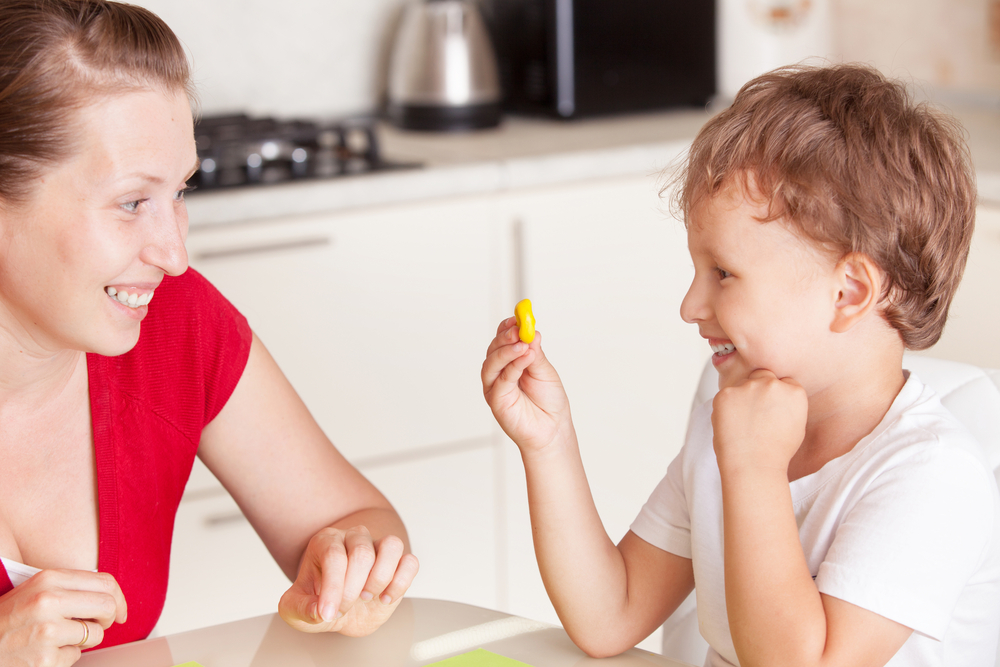What Scleroderma Has Taught My Kids
Written by |

“Mommy, come sit next to me on the floor and help me do this puzzle,” my 2-year old son demanded.
“I’m sorry, sweetie, but mommy can’t sit on the floor next to you. Let’s put the puzzle on the table. We can sit at the table and do it together.”
“NOOOOOOOOO! I don’t want to sit at the table! Sit down on the floor with me!”
It’s rare to be able to pinpoint a precise moment in time when your child’s world changed irrevocably. Although my son’s temper tantrum occurred more than 11 years ago, it is seared into my memory. There, on the floor of our basement, my son learned his mom was different from other moms. He began to grasp that there were things his mom would never be able to do.
My now-13-year-old son and 10-year-old daughter have learned from a young age that I will never be able to go on a bicycle ride with them, sit on the floor to play a game, or take a jog around the block. They’ve also had to deal with the question, “What’s wrong with your mom?” from their peers for as long as they can remember.
When my husband and I dreamed about starting a family, we focused on the short-term: Conceiving, experiencing a healthy pregnancy, and having a healthy baby. I thought about how scleroderma might impact me and my baby during the gestational period. I didn’t truly consider how my disease would impact my children once they’d been born.
Navigating parenthood is tough enough without having to worry about the toll my disease may be taking on my kids. I know it’s hard for them when a new friend stares or asks questions about my altered appearance. I’m sure they would love for me to be able to participate in outdoor adventures with them, like building snowmen, kayaking, hiking or snorkeling. Actually, my teenage son probably doesn’t want to do those things with me anymore, but there was a time when he did.
I tell my kids that we always have a choice in how we view life’s challenges. We can wallow in the negative, or search for the positive. Maybe their friends were uncomfortable when they first met me. But once they got to know me and learned that I buy doughnuts the morning after sleepovers and let them paint in my garage, they accept me pretty quickly.
After my daughter’s birth, I suffered grave complications that led to a 218-day hospital stay. I lost my colon, spleen, and the ability to talk, walk, eat or drink. I came frighteningly close to not coming home to raise my kids. Making a remarkable recovery and having the privilege to experience motherhood has offered me tremendous perspective. Yes, I do wish I could sit on the floor with my kids and play Monopoly, but they know I need to play at the table. We make adjustments, big and small, to accommodate my needs.
My kids’ childhood memories won’t be filled with visions of us sledding down a steep hill, or hiking up mountains. Yet, I hope when they look back on these years, they’ll remember a mom who demonstrated what it means to be resilient, a mom who loves them more than anything, and a mom who’d move mountains for them, if she could.
***
[To learn more about Lisa’s journey with scleroderma, visit her blog Comfortable in My Thick Skin. Check out her memoir, Does This Hospital Gown Come with Sequins?]
Note: Scleroderma News is strictly a news and information website about the disease. It does not provide medical advice, diagnosis, or treatment. This content is not intended to be a substitute for professional medical advice, diagnosis, or treatment. Always seek the advice of your physician or other qualified health provider with any questions you may have regarding a medical condition. Never disregard professional medical advice or delay in seeking it because of something you have read on this website. The opinions expressed in this column are not those of Scleroderma News, or its parent company, Bionews Services, and are intended to spark discussion about issues pertaining to scleroderma.







Leave a comment
Fill in the required fields to post. Your email address will not be published.